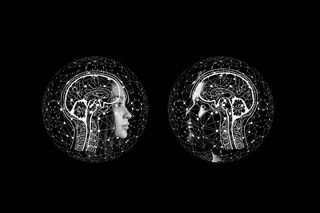Health
4 Important Phytonutrients for Brain Health
Check out these natural medicines for your mind.
Posted May 31, 2022 Reviewed by Abigail Fagan
Key points
- Phytonutrients, substances found only in plant foods, can help maintain and enhance mental health.
- Phytonutrients are found in fruits, vegetables, grains, and other plant foods, as well as beverages people consume every day.
- The best way to get as many phytonutrients as possible is to follow a plant-based diet endorsed by health experts.

Back in the 1980s and 1990s, phytonutrients (also called phytochemicals, or plant chemicals) became the “next big thing” in nutrition and good health. Found only in plant sources like fruits, vegetables, herbs and spices, and even coffee, tea, and wine—phytonutrients are not technically nutrients. That’s because, unlike macronutrients (protein, carbs and fat) and micronutrients (vitamins and minerals), phytonutrients are not necessary for cell development and survival. But phytonutrients have been shown to support good health and fight disease by serving as antioxidants that shield cells from inflammation and other stressors that damage the body over time.
Since their superpowers were first brought to light, scientists have isolated and identified thousands of phytonutrients in plant foods. Some, like carotenoids, anthocyanins and chlorophylls, are also natural pigments that add deep color to some fruits and vegetables and other plant foods. Many have been studied further, and several types of phytonutrients have been found to have potential anti-diabetes, anti-cancer, anti-heart disease, anti-obesity and other medically preventive and therapeutic effects.
In more recent years, food scientists have been looking at the effects of phytonutrients on brain health and disease. There is already a solid, established link between good nutrition and brain function. We know that vitamins A and C, the minerals iron, iodine, and zinc, omega-3 fats, and certain amino acids found in protein are particularly important for healthy cognitive development and ongoing brain maintenance. Scientists have also discovered that phytonutrients play an important role in maintaining brain health throughout life, and help to manage brain diseases and disorders from depression to dementia. In human studies, several families of phytonutrients appear to have marked potential in the field of brain health and well being:
Anthocyanins, found in purple-blue fruits and vegetables, such as blueberries and other berries, grapes, purple cabbage, black carrots and blue potatoes, are thought to have therapeutic value when it comes to sleep disorders.
Caffeine, naturally found in varying amounts in different types of coffee, and L-theanine, found in green and black teas, are known to enhance cognition, and may improve memory, attention, and learning ability.
Flavonoids, found in tea, wine, onions, apples, and other fruits, berries, and vegetables, are linked to improved cognition as a result of their antioxidant and neuroprotective properties. These protective phytonutrients may also help prevent or delay the progression of Parkinson’s Disease. Another class of flavonoids, found in soy foods and known as isoflavones, have also been found to reduce episodes of insomnia and improve sleep efficiency in menopausal women.
Phenolic compounds, widely distributed in nuts, fruits, vegetables, grains, herbs, coffee, vanilla beans and spices have been linked to prevention of both Alzheimer’s Disease and Parkinson’s Disease.
These are just some of the important phytonutrients potentially linked to brain health. The best way to be sure you get as many phytonutrients (and essential nutrients) in your diet as possible without having to memorize their individual scientific names and sources, is to regularly follow a diet that’s super rich in a wide variety of fresh vegetables, legumes, grains, nuts, and other plant-based foods. The three diets that promote these plant foods — the Mediterranean diet, the DASH (Dietary Approach to Stop Hypertension) diet, and the MIND diet — are also at the top of the list of healthiest diets overall, as recommended by government and scientific experts.
References
Monjotin N, Amiot MJ, Fleurentin J, Moreal JM, Raynal S. Clinical evidence of the benefits of phytonutrients in humans. Nutrients. April 2022; 14(9): 1712
Altomare R, Damiano G, Palumbo VD, et al. Feeding the Brain: the importance of nutrients for brain function and health. Progress in Nutrition, 2017; 19(3): 243-247
https://iris.unipa.it/retrieve/handle/10447/256249/489073/Feeding%20the…
Khali, N. Malnutrition of micronutrients and brain disorders. Role of Micronutrients in Brain Health. Nutritional Neurosciences Springer, Singapore. March 30, 2022: 167-182.
https://link.springer.com/chapter/10.1007/978-981-16-6467-0_10


